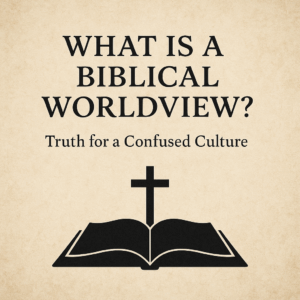⏱️ Estimated Reading Time: 7 min read
Our summer garden has all but stopped producing vegetables. The bean plants were mostly eaten by invasive beetles, the peas never came up, and many of the cucumbers got too big and bitter before we could eat them. Half the tomatoes fell before we could use them. Weeds have taken over wherever I have failed to fight them off.
I’ve had a much greater appreciation for the Parable of the Sower since I began gardening a few years ago. I have so much hope every spring when I plant my seeds. The garden looks full of potential! But just as in the Parable, so many things can go wrong between planting and harvest. Jesus imagines the gospel arriving in the form of a seed. His metaphor reminds us that we cannot produce seeds from scratch, they can only come from a mature plant. Just so, the gospel comes to us not of our own power or insight, but as a call from God. We also note how each tiny seed carries immense potential for growth, but only under the right conditions. Seeds don’t always do what you expect them to do. Weeds, lack of space, lack of rain (or too much rain!), and a number of other factors can indeed prevent the good growth a seed promises, just as Jesus explains in Matthew 13:18-23. The gospel seed that does grow is the one that is sown in good soil, in a person “who hears the word and understands it” (Matthew 13:22-23).
In 2 Peter 1:3-4, Peter makes it clear that “life and godliness” begin and end with “Him who called us.” Just like the sower provides the seed, the message of God’s grace is planted by Him in order to bear fruit that will please Him. In these verses we see two things God has granted: He has “granted to us all things that pertain to life and godliness” and “has granted to us his precious and very great promises.”
This passage answers twin questions: How does God grant “life and godliness” to us? And, more importantly, Why? The answer is actually one long sentence in which every part relies on the part before it. It is easy to get lost in this sentence where every part is contingent upon every other part, making it difficult to isolate one idea at a time. In English, we see prepositions like through, to, by, of but in the Greek only word one word is used: dia, which denotes the “channel of an act” (Strong’s). I find it helpful to think of God’s grace in this passage behaving like water. God is the source of the water, and it flows through us toward its ultimate destination, which is to bear fruit that will bring glory to God. It is difficult to study water in motion, so we will look at each phrase as it flows into the next.
First, it is “His divine power” that initiates by giving to us “all things that pertain to life and godliness.” If we want life, he is the source. If we want godliness, it comes from him. As dependent as we are on water, we are dependent on his power to provide everything we need to live and grow in holiness.
This power comes “through knowledge of him.” Grace is channeled to us through our knowledge. This is knowledge “of him,” so we are not simply collecting information, but getting to know a person. When we get to know a person, the emphasis is not on what we know but on the increased enjoyment we get from our relationship as we learn more about our friend. This is knowledge that doesn’t stop with us but flows through us for a purpose.
The purpose of this knowledge is to get to know “him who called us to his own glory and excellence.” God has called people to obey without very much knowledge of him. Abram was called to leave his family and his homeland in Gen. 12 even though he had very little information about God. Abraham is credited with faith for obeying, “not knowing where he was going” (Heb. 11:8). When God calls Moses, he introduces himself as “the God of Abraham.” His glory and excellence have been on display before, and he is continuing to build on this reputation through Moses and now, through us.
This knowledge flows to us through “his precious and very great promises,”, which are the scriptures we are fortunate enough to possess. While we might envy the direct contact Abraham and Moses had with God, Peter has already assured us in verse 3 that we have “everything we need for life and godliness.” The Scripture we possess is sufficient to teach us about Him who called us. In Scripture, we witness God’s plans for His people, and we can read about times when He has already fulfilled these promises. These fulfilled promises give us confidence to trust in those promises that remain unfulfilled.
All of this explains how grace is channeled to us: everything we need has been granted to us through knowledge that comes through the promises of Scripture. But here again, we must emphasize why: “so that through (the precious and very great promises) you may become partakers of the divine nature.” God initiates grace in our lives in order that we might become more like Christ.
If I’m honest, “godliness” and participation in the “divine nature” is not what I want some days. I want my own glory. I want to enjoy the power and privilege that come from having my name recognized and my talents praised. When I accept the flow of God’s gracious gifts but do not allow them to flow through me for his glory, I build a dam so I can hoard the gifts of his grace.
Godliness and participation in the divine nature seem more valuable to me when I recognize my sin and long for an escape from “the corruption that is in the world because of sinful desire.” My sinful desire leads me to seek my own glory, but such recognition produces a brief and fleeting joy that quickly turns into a pressure to repeat or exceed my previous achievements. When I participate in God’s divine nature, I can escape the “sinful desires” that keep me perpetually seeking glory that will not last and will not satisfy and eventually cause the “corruption that is in the world.”
Godliness and participation in the divine nature are not meant for me alone. They are meant for God. We will never have all his “divine power” (though we can access it through prayer!). We can participate in his communicable attributes which will display his “glory and goodness” and lead others longing to know the one who calls to us in Christ. In being good soil, we provide a means by which God’s Word can bear fruit and reproduce disciples. We participate in the divine nature and God’s grace to us “is not in vain” (1 Corinthians 15:10). Those of us who hear the word and understand it are like “a well-watered garden” (Isaiah 58:11) as we get the joy of seeing God’s Word bear fruit in our lives.




